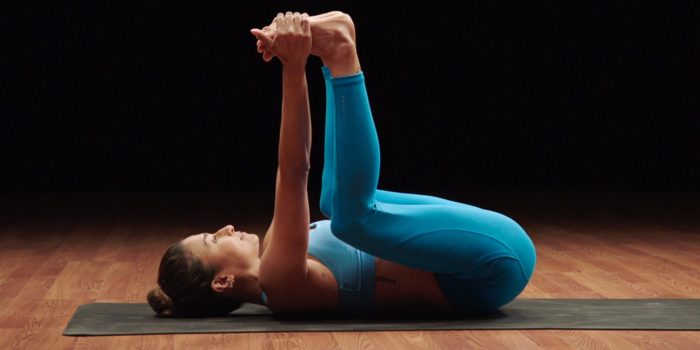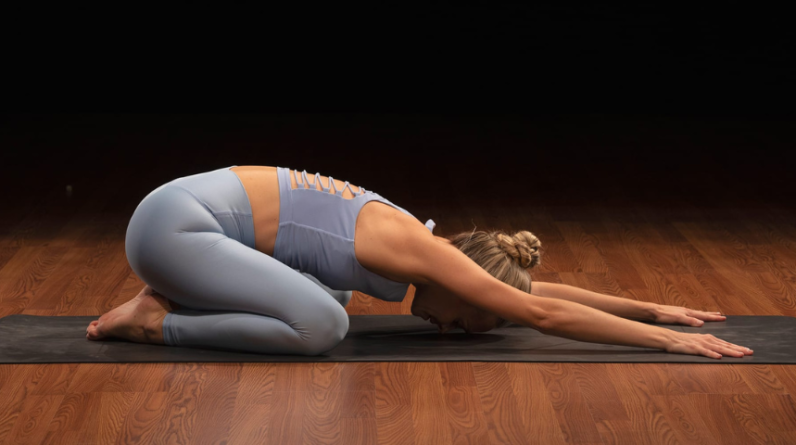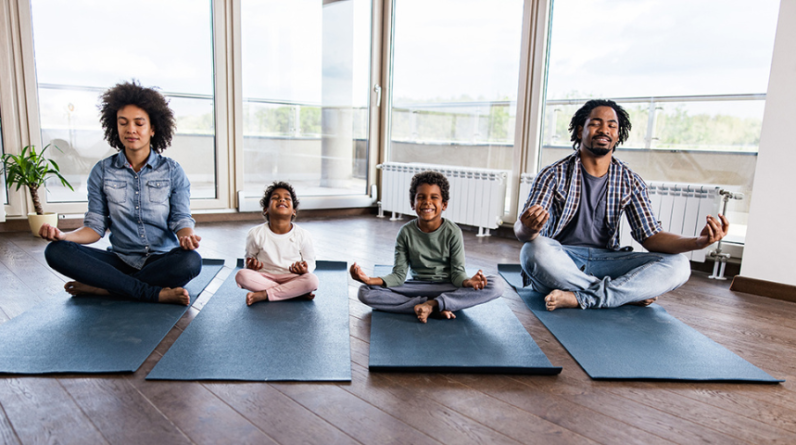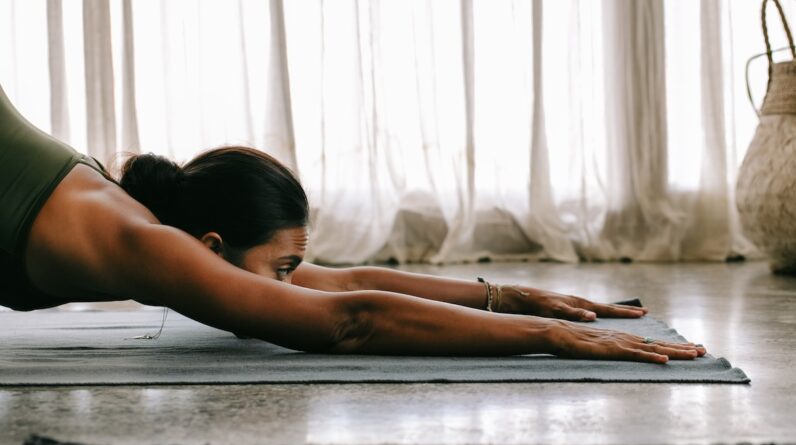
Although happy baby pose (ananda balasana in Sanskrit) isn’t a traditional posture in the lexicon of challenging yoga poses, it’s one worth doing at the beginning of your practice and/or the end. Anytime you do anything that has you lying on the floor, you have an opportunity to relax, which can help balance the nervous system.
Feeling the back of your body against the floor creates a sense of support. Being grounded (literally), coupled with the stretching of your inner thighs, groin, and spine, induces a release of tension, which can help put you at ease.
Striking the pose of a happy baby, with its chubby little legs and fat feet, is also fun and reminds us not to take yoga poses too seriously.
Happy Baby Pose (Ananda Balasana): Step-by-Step Instructions
- Lie down on your mat, bend your knees, and place your feet flat on the floor with your hands at your sides.
- Find a neutral pelvis position by moving your sit bones forward in the direction of your feet while maintaining some engagement in your core.
- Draw your knees toward your chest, grab the backs of your thighs, and gently move your knees apart, lifting the soles of your feet toward the ceiling.
- Reach your arms between your legs, and grab the outer edges of your feet. Your feet should be “flat,” as if you’re standing on the ceiling.
- You can deepen the stretch by gently bringing your inner thighs down beside your ribs and pulling your knees closer to your chest as your head, shoulders, and triceps meet the floor.
- Take a few long and soft breaths, feeling your back spread on to the mat as you simultaneously spread your collarbone wide across your chest.
Tips for Doing Happy Baby Pose
- Explore the movement of your pelvis by alternating back and forth from a posterior tilt (tucking your tailbone up toward the ceiling) to an anterior tilt (extending your lower back). Rather than thinking one orientation is right and one is wrong, consider the benefits of both. Brent Laffoon, instructor in BODi’s Yoga52 series, says, “Sometimes retaining the lumbar curve feels right, other times pressing it down into the floor can relieve lower-back tension.”
- Upon reaching for your feet, you can also play with holding them along their inner edges. Laffoon prefers grabbing the outer edges: “This helps keep the shoulders open, which allows for more access to thoracic extension.”
How to Make Happy Baby Pose Easier
If you can’t reach your feet, use two straps, looping one around each foot.
How to Make Happy Baby Pose Harder
While holding the outer edge of one foot, extend your other leg down toward the floor. Then work on making the pelvis level, from front to back and side to side. This can be especially challenging because one leg will be in deep flexion while the other is extended.







